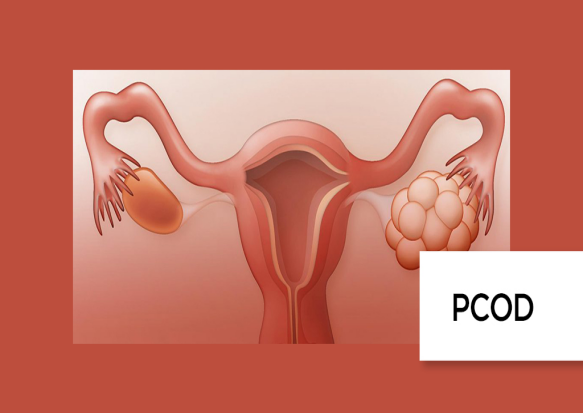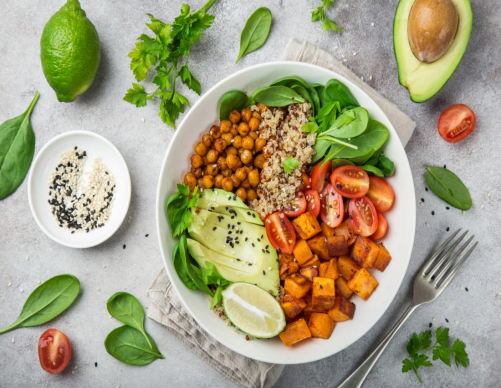Ayurvedic View on Non-Vegetarian Diet for PCOS: Dos and Don’ts for Hormonal Balance
Polycystic Ovary Syndrome (PCOS) is a common condition that affects many women, leading to hormonal imbalances that can cause irregular periods, weight gain, acne, and fertility issues. While Ayurvedic medicine views PCOS as a condition primarily resulting from an imbalance in the doshas—particularly Kapha and Pitta—it also emphasizes the importance of diet and lifestyle changes in managing such conditions.
In Ayurveda, food plays a crucial role in balancing the doshas and improving overall health, and this includes understanding how non-vegetarian foods affect the body. In this blog, we’ll delve into the Ayurvedic perspective on consuming non-vegetarian foods when dealing with PCOS, and share essential dos and don’ts for maintaining harmony and health.
Ayurvedic Insights on Non-Vegetarian Foods in PCOS
In Ayurveda, food is considered medicine, and every food item is categorized based on its qualities (gunas), actions (virya), and its effect on the doshas. Non-vegetarian foods—such as meat, poultry, and fish—are considered "tamasic" and "rajasic", which means they can have a heavy, lethargic, and stimulating effect on the mind and body. While these foods provide essential nutrients like protein and healthy fats, their heavy and warming nature may aggravate Kapha and Pitta imbalances, which are often associated with PCOS.
Dos for Non-Vegetarian Foods in PCOS -
-
Opt for Light and Lean Non-Vegetarian Foods - Ayurveda recommends consuming lighter, easily digestible meats such as chicken, turkey, and fish, particularly fatty fish like salmon, mackerel, and sardines. These fish provide essential omega-3 fatty acids, which are anti-inflammatory and help balance hormones. Avoid heavy red meats (beef, lamb) and processed meats, which are heavy to digest and may contribute to Kapha and Pitta imbalances.
-
Balance with Vegetables and Whole Grains - When consuming non-vegetarian foods, Ayurveda advises balancing the meal with plenty of vegetables (especially bitter greens like kale and spinach), legumes, and whole grains like quinoa and brown rice. This balance ensures that you’re getting ample fiber, antioxidants, and other nutrients that can help detoxify the body, regulate blood sugar, and balance hormones.
-
Use Digestive Spices - Ayurveda encourages the use of spices to aid digestion and balance the doshas. Spices like cumin, coriander, turmeric, ginger, and fennel have digestive and anti-inflammatory properties. They not only help improve digestion but also aid in the absorption of nutrients, support liver detoxification, and reduce inflammation, which is crucial for women with PCOS.
-
Incorporate Cooling Foods and Herbs - If you have a Pitta-dominant imbalance, Ayurveda suggests incorporating cooling foods and herbs like coconut, cucumber, mint, and aloe vera into your diet. These can help soothe the body and balance excess heat, particularly if you're eating non-vegetarian foods that are warming by nature.
-
Mindful Portion Control - Ayurveda recommends eating in moderation to avoid overloading the digestive system. Non-vegetarian foods, especially meats, should be consumed in small, balanced portions. It’s best to limit animal protein to 2–3 times a week, especially for women with PCOS, to avoid the accumulation of excess fat and to maintain hormonal balance.
Don’ts for Non-Vegetarian Foods in PCOS
-
Avoid Red and Processed Meats As mentioned, red meats like beef and lamb are considered heavy and difficult to digest in Ayurveda, particularly for those with Kapha and Pitta imbalances. These meats can worsen inflammation and contribute to the accumulation of ama (toxins) in the body. Processed meats like sausages, hot dogs, and bacon, which are often high in preservatives and unhealthy fats, should also be avoided.
-
Don’t Overconsume Non-Vegetarian Foods Ayurveda encourages a diet that emphasizes moderation, and this includes non-vegetarian foods. Overeating animal protein, particularly in large portions, can cause an overload of toxins and excess heat, leading to worsened PCOS symptoms such as weight gain, inflammation, and skin issues. Instead, focus on plant-based proteins like lentils, beans, and quinoa as the primary sources of protein.
-
Avoid Fried or Overly Oily Non-Veg Dishes Ayurveda advises against consuming deep-fried or heavily oily non-vegetarian dishes. These preparations can aggravate both Kapha and Pitta doshas, leading to sluggish digestion, weight gain, and increased inflammation. Grilling, steaming, or baking non-vegetarian foods is a much healthier option, as it helps retain the nutritional value without adding excess unhealthy fats.
-
Don’t Combine Non-Vegetarian Foods with Dairy Ayurveda often recommends limiting the combination of non-vegetarian foods and dairy, as both are heavy and can lead to digestive discomfort and excess mucus production in the body. This is particularly true for women with PCOS, who may already have issues like bloating, acne, or congestion. It’s best to consume non-vegetarian meals separately from dairy-heavy dishes.
-
Avoid Non-Vegetarian Foods at Night Ayurveda suggests that heavier foods, such as non-vegetarian meals, should be avoided during dinner, as they are more difficult to digest at night. If you choose to include non-vegetarian foods, try to have them earlier in the day, when your digestive fire (Agni) is stronger, allowing for better absorption and digestion.
Clearing Misconceptions: Non-Vegetarian Diet in Ayurveda and PCOS
There’s a common misconception that if you’re undergoing Ayurvedic treatment, you must cut out non-vegetarian foods entirely. However, this is not the case. Ayurveda recognizes the role of non-vegetarian foods in a balanced diet, particularly when consumed with mindfulness and moderation. While Ayurvedic practices may recommend a more plant-based diet for certain conditions, it does not outright prohibit non-vegetarian food for everyone, especially if it's carefully selected and prepared with consideration for your body's unique constitution and imbalances.
So, if you are a non-vegetarian and have PCOS, you don’t have to worry about completely eliminating meat from your diet. Ayurveda has specific guidelines for including non-vegetarian foods in a way that supports your hormonal health. The key is moderation, proper preparation, and balancing your meals with the right spices, vegetables, and other plant-based foods. By following these Ayurvedic principles, you can maintain a healthy, balanced diet while managing PCOS effectively.
As always, it’s recommended to consult with an Ayurvedic practitioner or a healthcare provider to personalize your dietary plan based on your doshic constitution and specific needs. With the right approach, a non-vegetarian diet can be a part of your holistic management of PCOS, helping you feel your best both physically and mentally.
.jpg)
.jpg)
.jpg)
.jpg)


.jpg)









.jpg)
.jpg)


